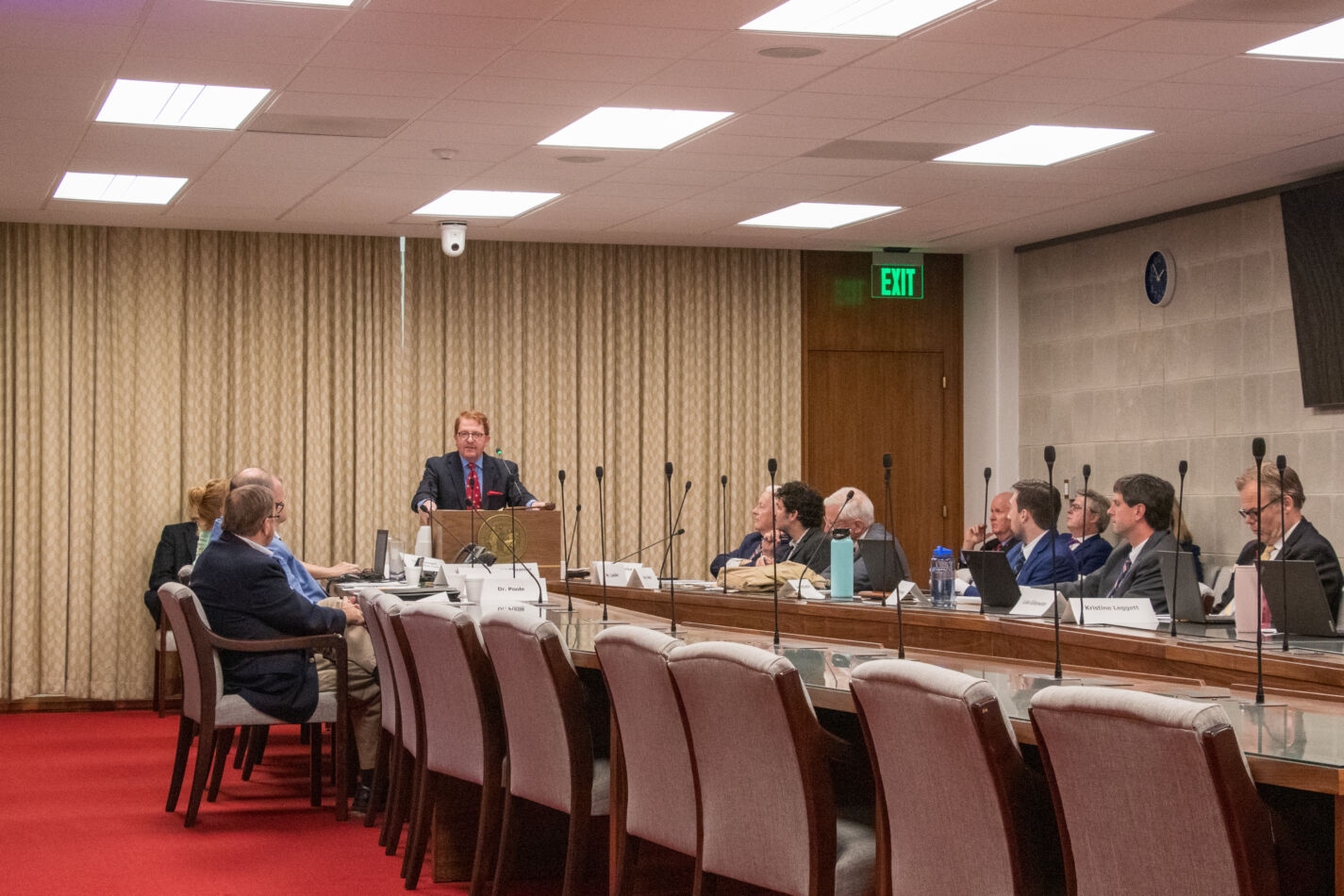The inaugural meeting of the North Carolina General Assembly’s Semiquincentennial Committee convened Tuesday to discuss the state’s plans for commemorating America’s 250th Anniversary on July 4, 2026.
The committee features John Locke Foundation’s Senior Fellow and Managing Director for the North Carolina History Project, Dr. Troy Kickler, and other distinguished members including: cochairs Sen. Ted Alexander, R – Cleveland, and Representative Hugh Blackwell, R – Burke; Kyle J. Luebke with McGuireWoods; Jason Luker with the Charlotte Museum of History, Hon. Charles Batcheller Neely, retired state representative, and Dr. Cary F. Poole, author and North Carolina railroad historian.
Alexander welcomed the group by expressing his desire to be sure North Carolina citizens are given the opportunity to “celebrate their pride [with] long-lasting markers for the future”.

In addition to Dr. Kickler, presentations were made by Dr. Andrew Taylor, professor of Political Science in the School of Public and International Affairs at NC State University, and Kellie Nothstine, Associate VP of Campus Life at Campbell University.
Dr. Taylor emphasized the importance of “the ideas of the revolution as much as the events”. He cited Lockean Liberalism as one of the primary elements that influenced the founding of the United States, and compared him to a “early Benjamin Franklin”. John Locke wrote the Fundamental Constitutions of Carolina in 1669 while working as a physician and secretary for Lord Shaftesbury, a Lord Proprietor of the Carolinas.
He also discussed the notion of a “Virtuous Citizenry” — the idea “that Americans were suited for a republic by virtue of their temperament [as] hard working, provincial, sturdy, wise, self-disciplined, and uncorrupted.”
You can view Dr. Taylor’s presentation slides here.
Dr. Kickler’s presentation focused on North Carolina’s claim to being First in Freedom through several notable events, highlighting the Edenton Tea Party in 1774, the Mecklenburg Declaration in 1775, and the Halifax Resolves in 1776.
Regarding the Edenton Tea Party, Kickler paid special attention to this as the first time “women, in an organized fashion, stepped into the political sphere of what would become the United States of America — very bold and unprecedented at the time.” The 250th Anniversary of the Edenton Tea Party will actually take place later this year in October 2024.
Halifax Resolves Day was celebrated last Friday, April 12, in Halifax County to commemorate the 248thanniversary, featuring a wreath-laying ceremony led by the NC Sons of the American Revolution.
Among his suggestions for celebrating the 250th Anniversary, Dr. Kickler mentioned organizing history tours, lecture series events at historical sites to include period actors for more engagement, as well as producing a series of short videos or documentary films that could be made available to the public.
Nothstine suggested creating immersive experiences for North Carolina families and younger generations through activities like street festivals and online engagement to incorporate technology that would capture a wider audience. She cited a need to focus on the experiential piece that would allow the public to truly see, hear, feel, and taste components of this era of our history by experiencing the culture of our founders, whether it be through food, music, art, or some other medium.
Committee member Luebke expressed a desire to reach out to specific stakeholders across North Carolina for comment, specifying HBCU’s of primary interest. According to the North Carolina African American Heritage Commission, there are 10 accredited Historically Black Colleges and Universities across the state.
Members of the public can register to be notified about future meetings available via livestream by signing up on the committee’s webpage.